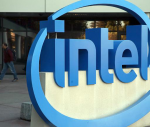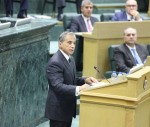You are here
‘Welcome changes in US policy’
Nov 16,2016 - Last updated at Nov 16,2016
If US President-elect Donald Trump sticks to his pledges to rectify relations with Russia and give priority to the fight against Daesh, rather than the Syrian government, these developments could mark welcome changes in US policy.
Securing rapprochement with Russian President Vladimir Putin would lower political temperatures in Ukraine and the Baltics, and this region.
Hostilities in Ukraine could be defused, allowing the Baltic states to relax.
Cooperation against Daesh could bring an end to the deadly and destructive intercontinental dimension of the proxy wars being fought over Syria, which have threatened conflict between the two main Cold War antagonists.
In the wake of his shock election victory, Trump agreed to meet Putin and usher in a period of “constructive cooperation”, particularly in the fight against “international terrorism and extremism”, the Kremlin announced.
Trump also reiterated his intention to join Moscow and Damascus in the fight against Daesh, and rejected opposition calls for enhanced arms aid.
Trump said he would not continue the Obama administration’s policy of supporting so-called “moderate” armed groups fighting Damascus.
“I’ve had the opposite view of many people regarding Syria... My attitude [is] you’re fighting Syria, Syria is fighting ISIS [Daesh], and you have to get rid of ISIS.”
He observed that the US has “no idea who [the insurgents] are”, referring to the largely takfiri factions fighting Damascus.
He also warned that if the US attacks President Bashar Assad, “we [will] end up fighting Russia, fighting Syria”.
On the campaign trail, Trump called this possibility “World War III”.
There is, however, a big “if” hanging over such changes in US policy, an “If” like a sword of Damocles.
The “if” is presented by Trump’s likely appointments of right wingers who would resist these shifts and seek to double-down on both Moscow and Damascus.
Two men tipped for secretary of state are former New York City mayor Rudy Giuliani, who has no foreign experience, and former UN ambassador John Bolton, the latter a warmonger left over from the George W. Bush administration.
Either of these men could be expected to oppose Trump on Russia and Syria and other key international issues where Trump might propose change.
Trump has already named Reince Priebus, Republican party chairman, as chief of staff and Stephen Bannon, an ultra-white-nationalist, as administration strategist.
The two men are, however, very different and could adopt competing and clashing ideas on Trump’s policy choices.
None of these men — Giuliani, Bolton, Reince and Bannon —represent change. The first three belong to the right wing of the Republican establishment while Bannon is regarded as a dangerous loose cannon.
Giuliani and Bolton are staunch supporters of Israel and could very well guide Trump on policy on the Palestinian-Israeli conflict.
Trump’s election followed a partial, belated shift by outgoing President Barack Obama on Syria.
The Washington Post reported he had issued an order to the Pentagon to track down and kill local leaders of Al Qaeda’s Jabhat Al Nusra, rebranded as Jabhat Fatah Al Sham. This amounted to a widening of US targets.
Obama had previously commanded US special forces to focus on Al Qaeda commanders dispatched to Syria by Ayman Al Zawahiri, head of Al Qaeda central based on the Afghan-Pakistan frontier.
The decision to go after Al Nusra’s entire leadership demonstrates Obama’s too late realisation that Al Nusra has become the most powerful insurgent group in Syria now that Daesh has been weakened by the loss of territory in both Syria and Iraq.
It is difficult to understand why Obama refused to acknowledge that Al Nusra’s control of Syria’s northwestern Idlib province provided Al Qaeda with a strategic base on the west of the region from which the group can launch attacks in Europe and elsewhere.
Obama’s shift was partial because the US has taken-out four Al Nusra Afghan and local leaders, but has not, so far, mounted air strikes against Al Nusra fighters at bastions and bases in Idlib.
Al Nusra has to be uprooted from the bottom up rather than the top down.
Obama has not done so because he continues to back Central Intelligence Agency-vetted insurgents who remain loyal to Al Nusra and depend on its muscle in the fight against Damascus and its allies, Moscow, Tehran and Hizbollah.
What is happening in Aleppo is an example.
Highly motivated, well armed Al Nusra fighters have refused to allow civilians and fighters from other groups to leave besieged eastern Aleppo during ceasefires called by Russia and have led the so-far unsuccessful offensives to break the siege of insurgent-held districts.
Obama apparently issued the order to target key Al Nusra leaders with the aim of putting pressure on US insurgent allies to cut ties with Al Nusra, regarded as a “terrorist” organisation by the US and the rest of the international community.
But these allies have refused to break with Al Nusra, a demand Russia made nearly a year ago as a condition for cooperation with the US in the fight against Daesh.
Due to his mistaken support for “vetted” insurgents, Obama has refused to recognise that if Daesh is contained and ultimately suppressed, Al Nusra and its takfiri partners could be the main beneficiaries.
Al Nusra and Daesh are opposite sides of the same coin.
Daesh is an offshoot of Al Qaeda in Iraq, an offshoot which did not obey Ayman Al Zawahiri’s instruction to stay out of Syria and allow rival Al Nusra to run the show there.
Al Nusra shares both the ideology and agenda adopted by Daesh.
Although Al Nusra renounced its ties to Al Qaeda and Zawahiri went along with this move, the group remains loyal to its parent and could re-establish Al Qaeda in areas where it has been sidelined by Daesh, making Al Nusra, which projects itself as a less brutal and destructive taqfiri outfit, a far more dangerous challenge than the demonised Daesh to the region and the world.













